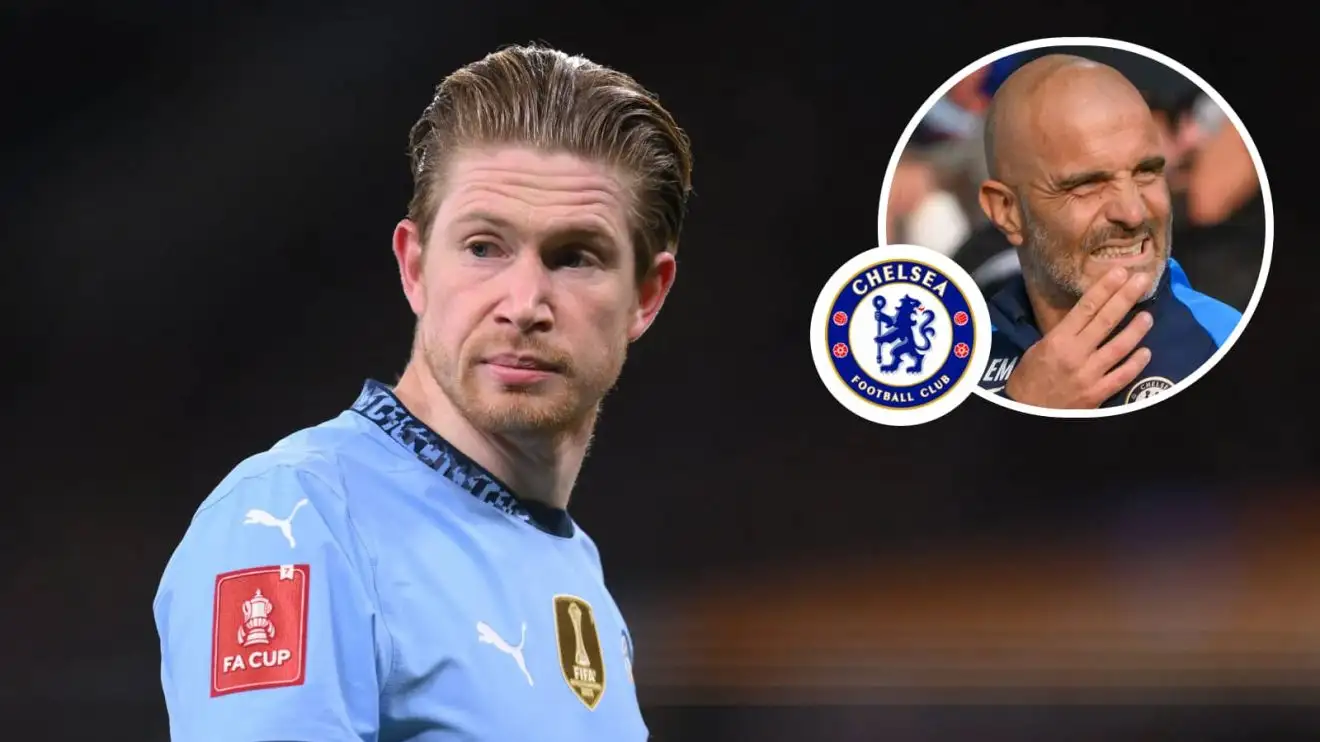
As the summer transfer window looms, Chelsea Football Club has made a definitive call on the prospect of re-signing Kevin De Bruyne, the Belgian maestro set to depart Manchester City as a free agent. Despite head coach Enzo Maresca’s expressed desire to bolster the squad with seasoned talent, the Blues have cooled their interest in the 33-year-old midfielder, citing a potential “selection headache” and concerns over his recent performance trends. This decision marks a significant moment for Chelsea, balancing nostalgia for a former player against the practicalities of building a competitive team for the future.
De Bruyne’s journey with Chelsea is a tale of unfulfilled promise. Signed from Genk in 2012 for around £7 million, he made just nine appearances before being sold to Wolfsburg for £18 million in 2014. That move proved to be a turning point, as De Bruyne flourished in the Bundesliga, earning a £55 million transfer to Manchester City in 2015. Over the past decade, he has cemented his legacy as one of the Premier League’s greatest playmakers, amassing 106 goals and 176 assists in 414 appearances, along with six Premier League titles and a Champions League crown. His departure from Chelsea remains a source of regret for fans, who see him as one of the club’s most significant missed opportunities.
The idea of De Bruyne returning to Stamford Bridge sparked excitement among some supporters, especially given Maresca’s call for more experience in a youthful Chelsea squad. “I think next year our squad will have more experience and then we can be better,” Maresca said, emphasizing the value of seasoned players. However, the club’s hierarchy has concluded that re-signing De Bruyne poses too many challenges. A key concern is how to integrate him alongside Cole Palmer, Chelsea’s 23-year-old talisman and a cornerstone of their attacking setup. Palmer, who left Manchester City in 2023 for regular playing time, has become indispensable, and fitting both creative midfielders into the same lineup could disrupt the team’s balance.
Another factor is De Bruyne’s form. While still capable of moments of brilliance—evidenced by his goal and assist in a 5-2 win over Crystal Palace in April 2025—his 2024-25 season has been marred by injuries and inconsistent minutes. “I still think I can perform at this level,” De Bruyne insisted, expressing surprise at City’s decision not to renew his £400,000-a-week contract. Yet, Chelsea’s analysis points to “signs of slowing down,” a critical consideration for a player who will turn 34 in June. The club’s interest in other experienced players, such as Virgil van Dijk before his Liverpool contract extension, suggests a preference for veterans showing greater physical resilience.
Maresca’s transfer strategy also hinges on Champions League qualification, which remains uncertain with Chelsea hovering just outside the Premier League’s top four. “According to today’s rules, you have to be careful how much you spend,” Maresca noted, highlighting the financial constraints that shape their targets. Instead of pursuing high-profile veterans like De Bruyne or Harry Kane, whose transfer costs are deemed prohibitive, Chelsea aim to sign players with substantial first-team experience, regardless of age. Young prospects like Bournemouth’s 20-year-old Dean Huijsen, with 25 Premier League games, fit this mold.
De Bruyne’s future remains open, with potential moves to Major League Soccer, the Saudi Pro League, or even other Premier League clubs like Aston Villa. Chelsea legend Joe Cole had urged the club to consider the Belgian, arguing, “What he gives the changing room as a winner, as a leader, we might only need him for 30 games a season.” However, the Blues’ decision reflects a pragmatic approach, prioritizing long-term squad harmony over a sentimental reunion. As Chelsea navigate a pivotal summer, their focus is clear: build a team that blends youth and experience without compromising their tactical vision.
Leave a Reply